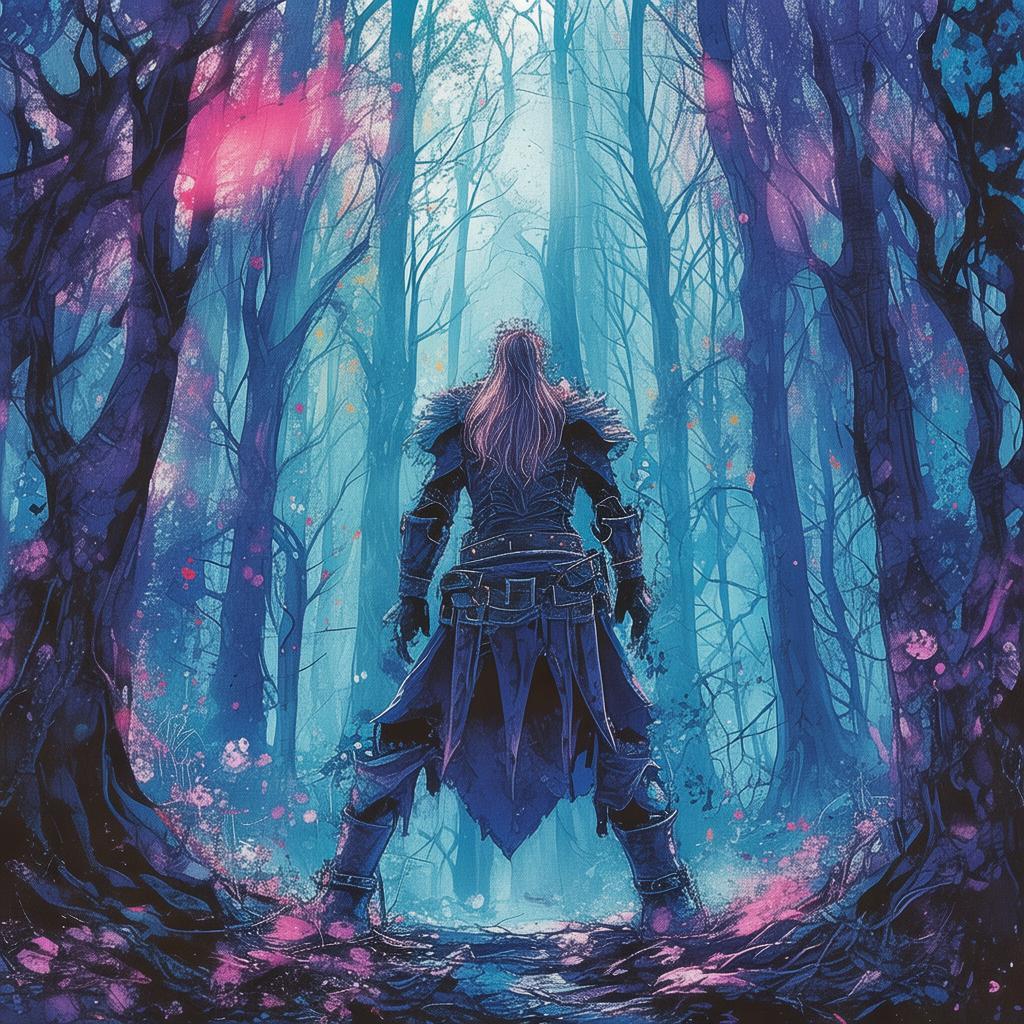The Whispering Shadow: A Liu Dynasty Mystery
In the heart of the Liu Dynasty, where the scent of incense mingled with the musk of exotic spices, a young courtier named Jing sat hunched over his scrolls. The moonlight cast a silvery glow through the paper lanterns, illuminating the intricate calligraphy that danced across the pages. Jing's mind was elsewhere, consumed by the whispers that had begun to echo through the corridors of the imperial palace.
It all started with the death of the Grand Minister, a man whose influence stretched further than the emperor himself. The court was abuzz with rumors, each more scandalous than the last. Some whispered that the Grand Minister had been poisoned, while others spoke of a traitor within the walls of the palace. Jing, with his keen intellect and unassuming demeanor, found himself in the middle of the storm.
One evening, as he strolled through the tranquil gardens of the palace, Jing overheard a conversation between two guards. Their hushed tones carried secrets that seemed to cling to the air, like the smoke from a distant bonfire. "The empress is not well," one guard whispered, his voice barely above a whisper. "Her eyes are haunted by shadows."
Jing's curiosity was piqued. The empress was a revered figure, beloved by the people and the court alike. The thought of her suffering troubled him deeply. He decided to investigate further, but he knew that the path he was about to tread was fraught with danger.
As he delved deeper into the mystery, Jing discovered that the whispers were not just about the empress's health but about a secret that could rock the very foundation of the Liu Dynasty. A secret that had been hidden for generations, a secret that someone was willing to kill to keep silent.
Jing's search led him to the Grand Minister's library, a place of knowledge and power. There, among the dusty tomes and ancient scrolls, he found a hidden compartment containing a cryptic message. It spoke of a hidden treasure, a treasure that could grant immense power to its possessor. But it also spoke of a curse, a curse that would befall the Liu Dynasty if the treasure were ever uncovered.
Jing knew that he had to find the treasure before it fell into the wrong hands. But as he followed the clues, he discovered that he was not alone in his quest. A shadowy figure, known only as the Whispering Shadow, was also on the hunt. This enigmatic figure seemed to know everything, and he was not above using force to achieve his goals.
The chase took Jing through the winding alleys of Chang'an, the bustling capital of the Liu Dynasty. He encountered loyal courtiers, cunning eunuchs, and ruthless assassins. Each encounter brought him closer to the truth, but it also brought him closer to danger.

As the days turned into weeks, Jing's resolve began to waver. The pressure of the quest and the weight of the secret began to take its toll. He found himself questioning his own motives, his own place in the grand tapestry of the empire. Was he the hero that everyone believed him to be, or was he simply a pawn in a much larger game?
The climax of his journey came when Jing discovered the treasure, hidden beneath the foundation of the Grand Minister's palace. But the treasure was not what he had expected. Instead of gold and jewels, it was a scroll containing the names of the loyalists who had been betrayed by the Whispering Shadow. The revelation shook him to his core, and he realized that the true enemy was not just the Whispering Shadow, but the corruption that had seeped into the very heart of the Liu Dynasty.
With the truth now exposed, Jing faced a difficult choice. He could turn the scroll over to the emperor, who would undoubtedly use it to consolidate his power and rid the empire of his enemies. Or he could destroy the scroll, allowing the Liu Dynasty to continue in its corrupt state, but with a chance for change.
In the end, Jing chose the path of self-sacrifice. He destroyed the scroll, ensuring that the truth would remain hidden. But as he walked away from the scene of his discovery, he knew that the whispers would never truly stop. They were a reminder that in the Liu Dynasty, secrets were the currency of power, and those who possessed them could shape the destiny of the empire.
As the story of Jing's bravery spread through the court, he became a symbol of hope in a time of darkness. The whispers of the Liu Dynasty continued to echo, but now they carried a new message: even in the darkest of times, there was always hope for a brighter future.
✨ Original Statement ✨
All articles published on this website (including but not limited to text, images, videos, and other content) are original or authorized for reposting and are protected by relevant laws. Without the explicit written permission of this website, no individual or organization may copy, modify, repost, or use the content for commercial purposes.
If you need to quote or cooperate, please contact this site for authorization. We reserve the right to pursue legal responsibility for any unauthorized use.
Hereby declared.









